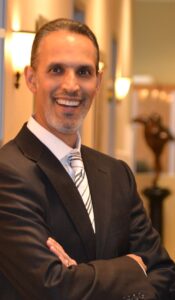One of the most important decisions when considering cosmetic surgery is choosing the right doctor to perform your procedure.
When considering cosmetic surgery, patients are almost universally unaware of the difference between “cosmetic surgery” and “plastic surgery.” For this reason, they may easily be misled to believe board certification in plastic surgery evidences a physician’s competence to perform cosmetic surgery. This is not always the case.
The truth of the matter is that a label or name does not guarantee a good outcome for the patient. To add to the confusion, many physicians use the term “cosmetic surgeon” loosely even though they are not specifically trained or certified in Cosmetic Surgery.
A patient seeking cosmetic surgery should know that a fellowship trained cosmetic surgeon, who specializes in the procedure you are seeking, is the most qualified surgeon to perform your cosmetic surgery.
A “fellowship” is an elite qualification that only a small percentage of surgeons performing cosmetic surgery can claim. A surgeon who has had an additional “fellowship” training has completed a focused and intense specialized training in a particular area of interest. This underscores a surgeon’s interest, commitment, and experience in performing procedures in that area of specialization.
Therefore when considering cosmetic surgery, you should seek the surgeon that specializes in the procedure you are interested in. To help give you guidance, the American Academy of Cosmetic Surgery, the nation’s largest interdisciplinary medical organization devoted exclusively to cosmetic surgery, has prepared guidelines with points to consider in helping you make an informed choice.
Qualified cosmetic surgeons will welcome your questions about their background and be pleased that you are concerned enough to ask. Here are some guidelines to assist you in selecting a qualified cosmetic surgeon:
First figure out what you want to improve about yourself. If unsure, interview a few doctors since there are different ways of performing a procedure.
- • Ask about the surgeon’s experience with the procedure you are considering.
- • Ask how many procedures of this kind has the surgeon performed and how many does he/she currently perform per year?
- • Look at before and after pictures and make sure that it is theirs. This may give you some indication of the surgeon’s ability.
- • Ask about previous patients that you can speak with regarding your procedure(s).
- • Ask about the anesthesia and the facility. Find out who will be administering the anesthesia and where will the procedure be performed.
- • Make sure that you are comfortable with the personal rapport between you and your surgeon.
- • In addition, you should feel at ease with the staff. You should always feel that your concerns are being addressed.
While there are several certifying boards that claim that their members have special qualifications in cosmetic surgery such as the The American Board of Plastic Surgery and The American Board of Facial Plastic and Reconstructive Surgery, no certifying board requires demonstration of knowledge as extensive as the American Board of Cosmetic Surgery. This is the only board that deals exclusively with cosmetic surgery.
A Diplomat of the American Board of Cosmetic Surgery must:
- • Have satisfactorily completed specialty residency training and be board certified in their original surgical specialty as recognized by the board (Plastic surgery, General surgery, Otolaryngology, Maxillo-facial surgery, Oculoplastic surgery).
- • Complete a one to two year fellowship concentrated solely in cosmetic surgery.
- • Have performed at least 100 documented cosmetic procedures after their fellowship in the year leading to certification.
- • Pass a stringent two day oral and written examination.
- • Be of good moral character.
Becoming a Diplomate of the American Board of Cosmetic Surgery is a significant professional achievement and honor. Diplomates must strive to represent the high ethical and moral standards of the ABCS and to support the Board activities for the advancement of the specialty of cosmetic surgery. Diplomates agree to adhere to the ABCS and AMA guidelines regarding the ethical practice of cosmetic surgery, including advertising and representations to the public, and to practice the highest standard of patient care and safety at all times.



